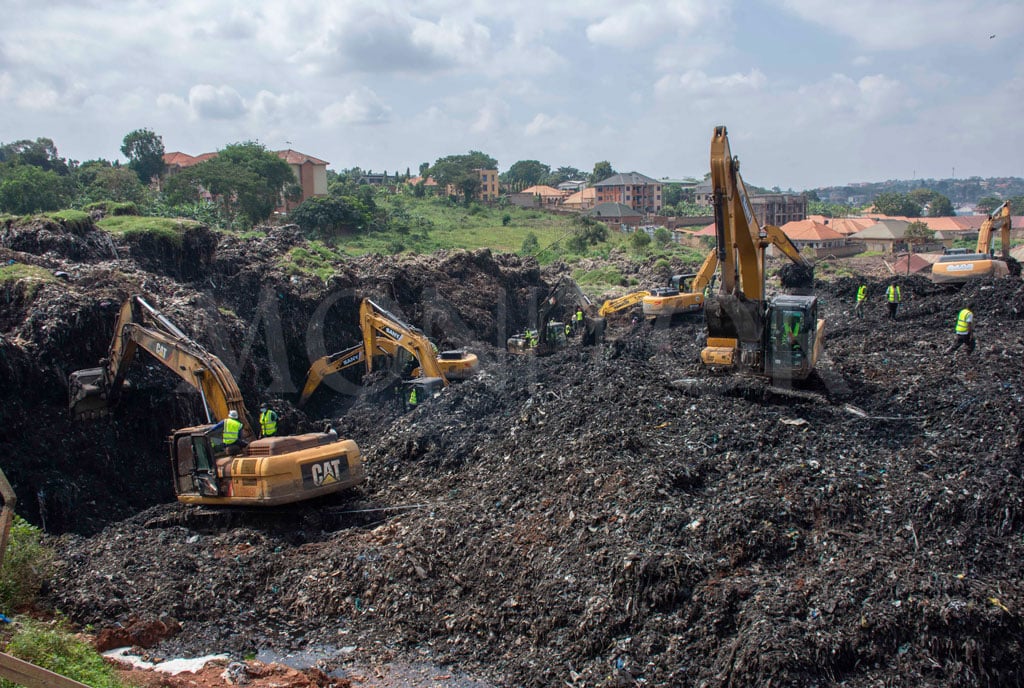
Hedwig Arinaitwe
Waste management has been a lingering problem for Uganda, but no one saw the darkness it was brewing all these years.
Who ever thought that in the year 2024 in a country called the pearl of Africa, a woman would scream her lungs out, and sob terribly following the demise of her children? How about the shock of finding a tombstone written on the cause of death: Kiteezi landfill collapse? The questions are many but the answers are few.
We all failed the victims. We all slept on the job. It is even hard to tell the aggrieved families to find strength in this trying time.
Needless to say, it is rather embarrassing to see other countries advancing to bigger goals like achieving carbon neutrality, while Uganda can’t even safeguard her citizens.
According to the National Environment Management Authority (NEMA), 600 tonnes of plastic garbage is generated by Uganda’s population every single day but only 8 percent is recycled. Further, data from Kampala Waste Management Report reveals that between 2000- 2,500 tonnes of waste is produced daily, making the country vulnerable to waste management challenges.
For Uganda to turn towards a waste intolerant country there has to be intentionality from the top authorities down to the households, and individuals. It’s a game of all and very achievable.
According to Kampala City Council Authority records, more than 1,000 people earned their living from the Kiteezi site picking plastics, scrap, waste, paper clothes, among others. This means that families were fetching a few shillings to afford a living.
For better sustainable waste management in Uganda, we must come up with a strategic waste separation, starting from local level to national level hence enabling sorting and recycling.
If Uganda’s future on waste management is to prosper, we must stop importing foreign garbage from these so-called big nations, desperate to find a dumping site for their trash. A good parent will discourage his or her children from eating the leftovers off visitor’s plates and so must Ugandans.
Our laws on waste management are just like wishes, when and how did the ‘‘kaveera” ban disappear, what is the role of the enforcers if such laws can’t be stringent.
We need to stop pointing figures and utilise technology to turn waste into wealth, by recycling, making manure from biodegradable waste. We hit two birds with one stone, as we keep our people safe, we create jobs for the thousands of unemployed youth and reduce the skyrocketing number of mental health issues.
Today it’s kiteezi, tomorrow could be the Rwizi river in western Uganda because floods and landslides are now common occurrences in Uganda due to climate change and poor waste management, among others.
In the 2023 climate change plan , Uganda committed to reducing its net greenhouse gas emissions from 22 percent to 24 percent in the Nationally Determined contribution . But is it possible?
We can’t have this discussion without looking at where the garbage that doesn’t have trucks transporting it to the landfill ends up. Much of the waste from manufacturing companies, and industries is allegedly dumped in wetlands, rivers and lakes during the night or when it is raining.
We have a vivid example of River Rwizi, which had choked on plastic garbage, until activists said enough is enough. River Nile has smelly water from the continuous dumping allegedly by some factories, homesteads, name them. You may argue that it’s a small percentage but the African proverb says when a nose is overly scratched, it can produce blood. We all play a role, and so must get to work.
There are three things we must do to solve Uganda’s waste management challenges. They are, strengthening the supervision and management responsibilities of the government, encouraging technological innovation by youth around waste exclusion and recycling and banning importation of foreign waste that is branded as second-hand clothes, shoes, among others. Uganda is not a dumping site.
Hedwig Arinaitwe Founder and Team Lead Climate Women Media Action.




